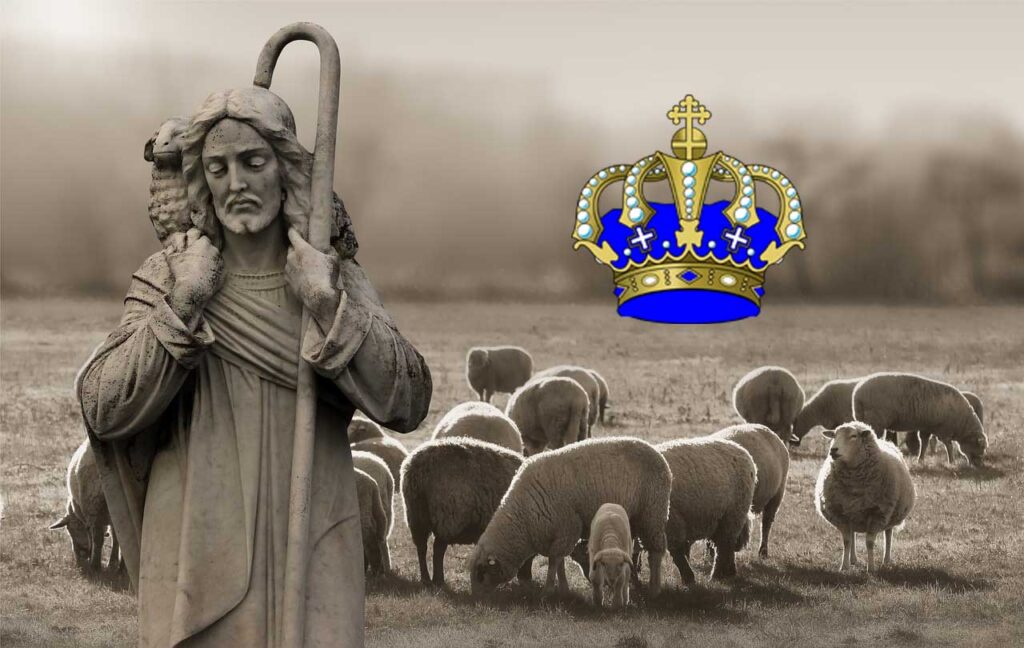
Healing
Luke 17:11-19 offers us the story where 10 lepers ask Jesus for help. All 10 are cured of leprosy as they were headed out to follow his instruction to present themselves to the priests. Only one, a Samaritan (foreigner, not a chosen person) turns back to say “Thank you.” Jesus tells this one that his faith has saved him.
In pondering this, it comes to mind that all 10 were cured/ healed of their leprosy. Why call a attention to the one who returned to say “Thank you.” So, thanks is obviously not required to be cleansed. Asking and then starting to follow through on the instructions seems to be enough. What is different about the one?
My guess is that this leper was healed/saved/made whole at a deeper level. He returned to the source of his healing. He was told “Stand up and go; your faith has saved you.” Just being cleansed of the disease was good, but it seems that expressing gratitude enhanced the result.
I also have to remember Jesus in this story at times. You know, those times when I do something to help another and get no thanks or acknowledgement. Jesus didn’t take away the healing for the 9 that went on their merry way without thanking him. He did offer additional blessing and encouragement for the one who did return. If we would do as Jesus did, we don’t offer help only to those who say “Thank you.” But, as one who is helped, we need to know that there are great benefits to giving thanks.
Of Kings and such

This Sunday the Catholic Church (at least in the US) celebrates the feast of Christ the King. Interesting how the readings for mass focus on shepherds and sheep and goats. Even the Psalm is Psalm 23 (The Lord is my shepherd.) If you want to read them yourself, look here:
https://bible.usccb.org/bible/readings/112623.cfm
The Gospel is Mt 25:31-46 where the sheep and goats are separated, and it becomes obvious that the ones who “did it right” (here named as sheep) are those that fed the hungry, gave drink to the thirsty and welcomed the stranger and in that way served God/Christ. The others (represented as goats in this gospel) are taken by surprise because they can’t even see that God/Christ is present in the unwashed masses who are hungry, thirsty and in a strange land. “When did we see You?” they ask.
It seems to me that the lesson here is that we are to see Christ in all people, in all of creation. It’s not always easy. It can be quite a struggle at times. After encountering men with red necks floating in their inner tubes on the lake, cigarettes rolled up in their T-shirt sleeves to keep them dry, having a beer and generally raising Cain, a friend offered the following prayer: “Jesus, if you are here, you need to show yourself now, because I just not seeing You.” Now that is knowing you are thinking like a goat, and it needs to change! In Vincentian terms this is “Seeing Christ in the face of the poor.”
The Kings and royal imagery in the Bible never sits well with me. As I understand Salvation History, the Hebrews started out with Judges, not Kings. They only got Kings after begging God for a King. And, it seems that didn’t really work out quite like they anticipated. When Jesus enters the story, they are looking for a Messiah — an earthly warrior that will conquer others and rule as King. That doesn’t quite happen as this Messiah refuses to be a military warrior and walks a different path.
Maybe that is one of humanity’s great sins: the wish for a King, the wish for power, the desire to be a part of a winning Kingdom that dominates all other. As the story goes, Lucifer was thrown out of heaven for just that sort of power grab. It seems that Judas’s error was that he was trying to force Jesus’s hand and get him to be the Messiah that Judas wanted.
We need to be careful with this Christ the King imagery. It can lead us astray as we strive to make Christ the King into the earthly image of King, instead of the following the Son who fed Judas after washing the feet of His disciples. What king in his right mind would do that? Only a Servant King.
Remember that, and stay alert so as to serve Him in all things.
Reconciliation

What about this Sunday’s Gospel hit me? For reference, read below.
Holy Gospel of Jesus Christ according to Saint Matthew 18,15-20.
Jesus said to his disciples: “If your brother sins against you, go and tell him his fault between you and him alone. If he listens to you, you have won over your brother.
If he does not listen, take one or two others along with you, so that ‘every fact may be established on the testimony of two or three witnesses.’
If he refuses to listen to them, tell the church. If he refuses to listen even to the church, then treat him as you would a Gentile or a tax collector.
Amen, I say to you, whatever you bind on earth shall be bound in heaven, and whatever you loose on earth shall be loosed in heaven.
Again, (amen,) I say to you, if two of you agree on earth about anything for which they are to pray, it shall be granted to them by my heavenly Father.
For where two or three are gathered together in my name, there am I in the midst of them.”
That part that is bolded: If he refuses to listen even to the church, then treat him as you would a Gentile or a tax collector. That’s what caught my attention.
Yes, talk directly to the person first, and only if that fails do you take witnesses, and only if that fails do you include the church… But as I read this part, I thought to myself: What did Jesus do with tax collectors? For one (Matthew, the author of this gospel), Jesus made him an apostle. For another, Zaccheus, the invitation was to share dinner. Jesus was often criticized for hanging out with tax collectors, and even gentiles at times.
This is hard. I don’t really want to reach out to some folks I consider mean, stupid (I know that term is not PC these days, but, it’s the best word I can come up with other than “of extremely limited intelligence”), even super rigid. It’s difficult to try to reconcile with them.
Granted, I’m not sure Jesus ever condoned a tax collector’s occupation. He did strongly suggest that unfair collections be repaid fully or even paid back with a bit extra. He also spoke His piece and left it up to the other person to accept it or not.
I think that is a part of the sacrament of reconciliation (Confession). We own our shortcomings, and accept the forgiveness that was always there. We are reconciled.
Joy. Calm. Rest for the soul.
Pentecost
Sunday past was Pentecost. Fifty days after Easter, the Roman [Catholic] Church, among others, celebrates the gift of the Holy Spirit as she descended upon the apostles and gave them a power to speak in all languages. To reach all people with the Good News.

This Spirit moves and animates in all sorts of interesting ways. After mass the Sunday before (where we celebrated the Ascension), one of the choir members approached me and said “None of us [musicians] will be here next week. So, if you want, you could lead some of the old songs.” Hmmmm. I retired from my role as parish musician several years ago after decades of service. It was a difficult call, and not always a smooth transition to be frank. And, my preference for guitar accompaniment and the songs I would choose seem to be a bit out of line with the current administration. Still, I considered the possibility of leading a song or two acapella.
I subscribe strongly to St. Augustine’s thought: To sing is to pray twice. I have struggled with the current music at church. It is lovely and harmonic and to my soul lacking energy. Most weeks I spend most of mass trying to find the things that can build me up and help me to give thanks. It’s difficult and I am all too often just sad.
Therefore, I did consider a couple of hymns that might be appropriate and singable. Like “Come Holy Ghost.” Much to my surprise Fr. Gil came up to me before mass and said “Kim said you would probably be helping with music this morning.” Now, it seemed I needed to at least lead Come Holy Ghost for opening. I don’t really know the current mass parts well enough to lead them, nor to I particularly like them. But, an opening song, OK. By the time I listened to the readings, I had a second hymn and a closing. So, all I needed was a communion song. Listen to the Spirit, listen to the Spirit, listen to the Spirit.
By the end of mass I had four songs/hymns. I could hear those behind me singing. It felt good. A young couple in the row behind us tapped me on the should and mouthed “Thank you” with a smile. The pastor thanked me for helping (in front of everyone). Again — it felt good. My soul was comforted. Isn’t the Spirit the Comforter?
After mass I was also greeted by a small group who thanked me and encouraged me. Fr. Gil suggested that if I wanted to show up at the Saturday 4:30 mass he would welcome the music. We are definitely Sunday folks, but when I first came to this parish I came on Saturday afternoon and helped with music. Is there a pattern emerging?
Not “doing music” seems to have a much deeper affect on me than I have previously been willing to recognize. Not sure what will happen going forward. At this time I shall enjoy the comfort of the Spirit, the praying twice as I sing. I will appreciate those people who responded to the movement of the Spirit and encouraged me.
It feels good. It feels peaceful. It feels like I’m healing, finally.
Seeing Reality

This idea of seeing and accepting reality has been following me around of late. It nudges me and it challenges me. Somehow, I’m pretty sure it will be a recurring theme so I’d best just learn to deal with it.
Today’s Gospel reading was LONG… we got the whole story it seems. If you want to read it in full go here: John 9:1-41 — yes, the entire chapter. The story is of a man who was born blind. He runs into Jesus, and Jesus makes a mud mask using his own spit and clay soil. He tells the man to go wash at Siloam which the man does, and he can see! And, by the way, this happened on the Sabbath. Well, this guy rejoices, but most folks don’t believe him. They think maybe it’s someone who looks like him. And, the officials, when they have to admit that it is him, and yes his blindness has been healed, they commence to arguing if this Jesus can be from God, since he broke the Sabbath rules and healed someone on the Sabbath.
Enter today’s reflection from Richard Rohr with the observation that sometimes (ok, most times?) we are not seeking to be right, but to be in control. It doesn’t really if I’m actually right as long as my view wins. We see not only in politics but in daily life as well. “If I can’t win this argument, let me turn it to a different argument.”
Back to the man born blind. It seems that because he is willing to tell his experience, he gets kicked out of the synagogue. He has to leave what should have been a rejoicing community, and he returns to Jesus.
My past jumped up in my mind. Nearly 25 years ago I found that God/Jesus/religion as I experienced it got me pushed out of what I had formerly felt to be a loving community. It was painful. I made the decision to look elsewhere in order to survive. I went to a different Catholic church (the only other one in the entire county). And, I found Jesus waiting to welcome me home. Granted, there have been struggles in this community as well, but I knew deep in my soul, 25 or so years ago, that this was right, proper, life-giving. My eyes were opened. I have had years to try to understand that I don’t need to judge Church A, but to accept that they see things quite differently than do I. It’s took years to be able to set foot in there again, and to be honest, I am still not comfortable there. But, it was time to seek Right, not control.
There are so many ways I have to let go of my side and seek truth. Sometimes it scary because God can speak truth to me from the mouths of folks I totally distrust and dislike intensely. I just don’t want to take off my blinders and allow truth to come from these dark places. And, I know well the saying that Satan can quote scripture with the best of us.
I must remember that reality doesn’t care what I think or believe. I remember it seems that the State Legislature in Tennessee at one time thought they could declare the value of pi to be 3, so calculations would be easier. Yeah — but bridges and more would fall down. Reality didn’t really give a flip about how easy it was to calculate certain values. Other current political, social and religious ideas run headlong into reality: You can try to tell people not to talk about sexual preference or gender issues, but that simply won’t stop how a person feels and what he/her/their preferences are. You can declare the value of pi to be 3, but the universe isn’t going to change. You can refuse to believe “supernatural things” occur, but you can’t change my experiences. You can edit the January 6 videos to show only the parts you want to be true, but it won’t bring back a dead police officer (or 2) or the fear felt by so many during the events.
Start with the real. Look beyond outward appearances. Seek the truth.
